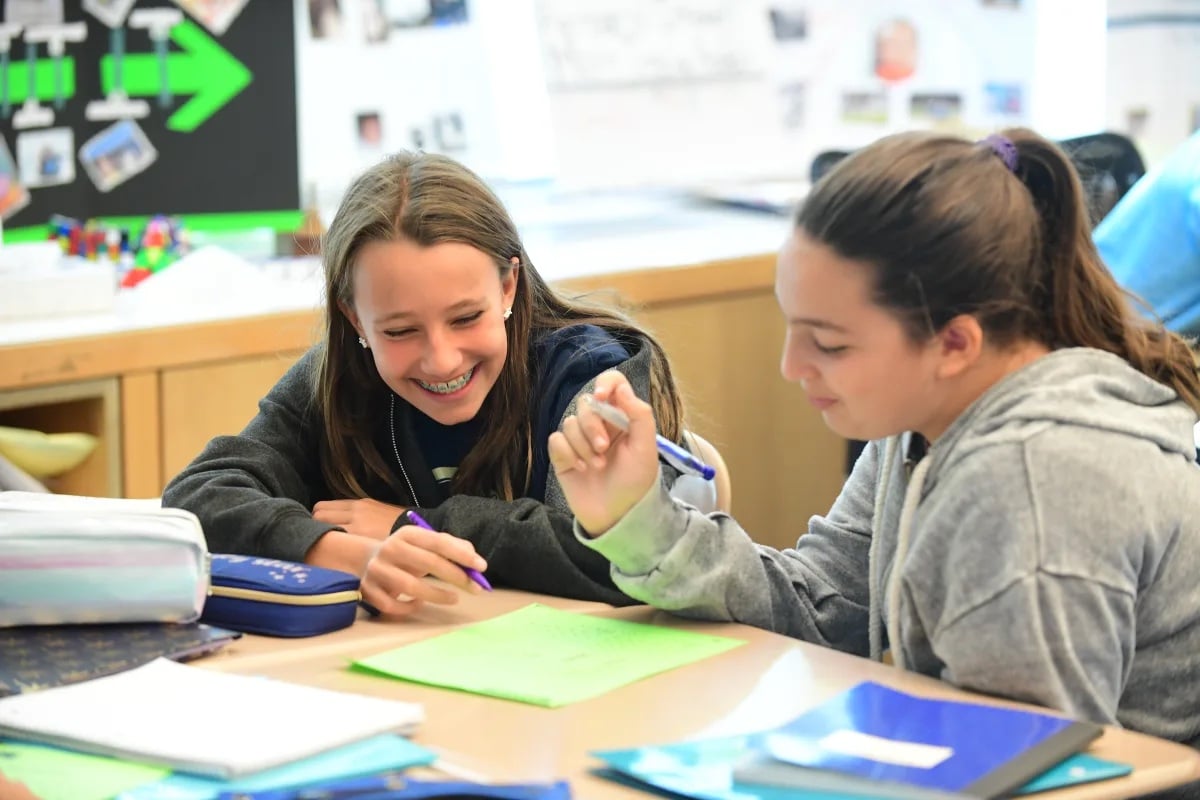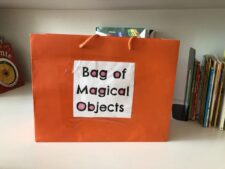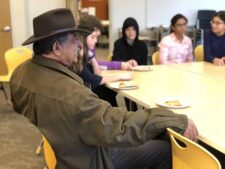On the morning of March 12, Sharan Gill, English Teacher, and I presented a writing workshop for parents and guardians. We led them through a shortened version of a writing project some 7th and 8th Graders engaged in this year. The prompt, based on a writing contest from “Yes! Magazine,” asked: If you were to host a potluck or dinner to discuss a challenge facing your community or country, what food would you cook? Who would you invite? On what issue would you deliberate? We love how this prompt connects to our School’s mission and core tenets. It invites the writer to think ethically about a relevant, important issue and to approach it playfully, through an imagined dinner.
Just as we do with students, we led parents and guardians through using freewriting (thinking onto paper) as a strategy to get down an initial draft, and then we taught two mini lessons: how to add imagery and how to use conjunctive adverbs and semicolons to create sophisticated sentences. Many parents expressed their appreciation of getting a chance to experience what their children do in their English classrooms.
Here are some of the questions we are asked most frequently about writing and grammar in the Middle School:
What are the most important things for student-writers to learn about writing?
- Writers write because they have something to say.
- Writers write for an audience.
- Writing is a process.
- Writing is also a way of thinking. Freewriting is the process of thinking onto the page. With practice, writers can get more fluent at writing to figure out what they think, rather than first having a complete thought and then recording it.
How do you teach grammar?
- We teach grammar as an important aspect of writing. Conventions, such as writing and spelling, help the reader follow and understand the writer’s ideas. We teach and review conventions like capitalization and comma usage as students are working on their writing so that they can immediately practice the skills on pieces in which they are invested.
- We also teach grammar as a series of choices writers get to make. Grammatical choices — like which punctuation mark to use and whether to use a series of short sentences or one long sentence — affect the mood and tone of the piece. Writing is an art, and just as a painter chooses which colors and brushstrokes to use, writers choose which words to use as well as how to structure and punctuate sentences.
What kinds of feedback do teachers give student-writers?
- Teachers give students reader feedback, which tells the student how we, as readers, heard and responded to the piece: what moved us, what surprised us, what pulled us in, what made us think.
- Teachers also give students writing coach feedback: advice on what to keep doing and what to work on or try doing differently.
- Finally, teachers give students evaluator feedback: concrete evaluative feedback on where the writing is or is not effective. This feedback generally takes the form of a rubric chart that coincides with the assignment checklist.
- All of this feedback can be found in the student’s individual feedback doc, so be sure to ask your child about it.
When do teachers give feedback and guidance to student-writers?
- At the beginning of an assignment, teachers provide students with assignment guidelines and checklists, as well as model texts so they know what a finished product might look like.
- As students are working on an assignment, teachers provides feedback through writing conferences and/or through comments on student papers and Google docs. Teachers also teach writing skills through mini-lessons and individual conferences as students are working on long term writing projects
- At the conclusion of an assignment (when it is due), the teacher provides formal feedback, usually in the form of reader, writing coach, and evaluator feedback.
Here are some useful resources:



